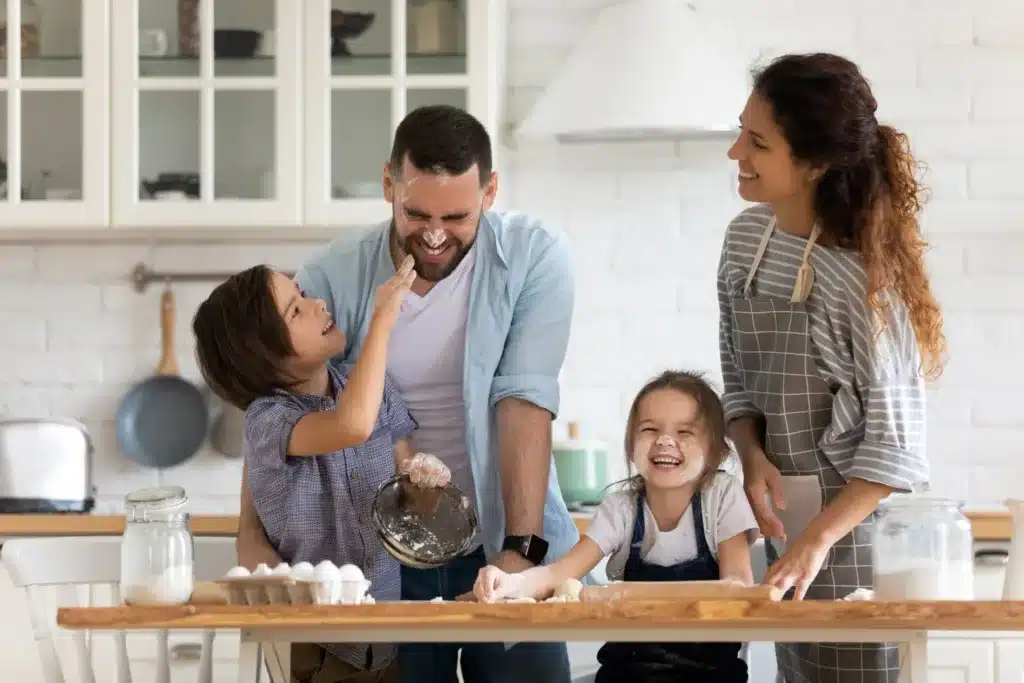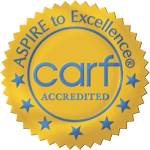CCYSB is the only outpatient mental health agency in Carroll County where you can access every service you and your family need, all under one umbrella. From traditional therapy options to early head start programs and more, your family will receive the highest quality of care and attention with dignity and the utmost respect. It is the only place with a true tradition of changing lives for the better.

Brief Strategic Family Therapy (BSFT) is a short-term, problem-focused, evidence-based model which serves youth (6-18 years-old) and their families. BSFT serves children with conduct problems, problematic family relationships, substance use, oppositional and defiant behavior, delinquency, aggressive & violent behavior, risky sexual behavior, and anti-social peer involvement. BSFT focuses on problematic interactions within the family, replacing them with healthier interactions.
This model of therapy involves the entire family in counseling sessions and focuses on changing the way family members interact so that positive relationships are strengthened, and negative behaviors are reduced. BSFT is based on the assumption that the family is the most important and influential system in the lives of children, that each family is unique, and that the behavior of each member can be understood only by considering the family context in which it occurs.
BSFT is a strategic approach that uses pragmatic, problem-focused, and planned interventions that improve relationships in the family and helps parents develop strong, consistent, and effective parenting skills. It is a flexible approach that can be adopted to a broad range of family situations in a variety of settings. Current data shows that BSFT has led to a significant level of improvement in 89% of the families served in the program. Referrals are screened by a trained BSFT therapist to ensure that the presenting issues are appropriate for the model. Typically, families have a successful termination within 6 months, or up to 24 sessions.
The Carroll County Youth Service Bureau is licensed as a Brief Strategic Family Therapy © (BSFT©) Provider. As part of this license, CCYSB receives BSFT training, supervision, and adherence/fidelity monitoring from the Family Therapy Training Institute of Miami.
**The use of evidence-based interventions aligns with our agency’s vision to be the foremost mental health provider for youth, adults, and families in Carroll County by providing innovative, culturally sensitive, and highly-effective treatment. CCYSB curently uses five treatments which are evidence-based models requiring fidelity to the model.
People Cared For
Program Director
This treatment model serves young children from birth through age five and their parents/caregivers. One of the main goals of Child-Parent Psychotherapy is to support and strengthen the parent-child relationship as this relationship is central to the child’s healing, development, and well-being.
One of our main goals through Child-Parent Psychotherapy is to support and strengthen your relationship with your child. We believe that you are central to your child’s development and well-being. If your child is facing challenges, you are critical to your child’s healing. Unfortunately, many families go through stressful experiences. Families and children we work with teach us that young children (even babies) are very sensitive to stress in their environments. They are not immune to these experiences, but they can recover with the support of parents and other caregivers. Very stressful or scary experiences can teach young children unspoken lessons that then affect their development and their behavior. Stressful experiences can also affect young children because these experiences can affect the mood and functioning of the grown-ups around them. Young children learn from watching us. Our worries can become their worries, and when we are under significant stress, we might become irritable, impatient, or withdrawn. Young children often blame themselves for their parents’ moods and behavior.
We believe in the commonly used phrase “it takes a village to raise a child”. We hope that we can become part of your village.
What happens during CPP?
We work together in three stages:
- Getting to Know the Child & Family – we spend time meeting alone with parents or caregivers to understand the family’s:
- Needs & Challenges
- Strengths & Values
- History & Experiences
- Addressing Family Needs – we usually meet once a week with the parent or caregiver and child. We help parents or caregivers and children to:
- Understand each other
- Talk and play about difficult experiences
- Respond to difficult feelings and behaviors
- Create a family story that leads to healing
- Wrapping Up & Planning for the Future –
- We celebrate changes the family has made
- We talk about how parents and caregivers made changes happen
- We consider how endings and goodbyes may bring up different feelings
- We talk about what will be needed in the future
**The use of evidence-based interventions aligns with our agency’s vision to be the foremost mental health provider for youth, adults, and families in Carroll County by providing innovative, culturally sensitive, and highly-effective treatment. CCYSB curently uses five treatments which are evidence-based models requiring fidelity to the model.
People Cared For
Program Director
CCYSB, in partnership with Carroll County Department of Juvenile Services (DJS) and Carroll County Local Management Board (LMB), provides behavioral health case management services for youth and their families at risk of involvement in Maryland’s Department of Juvenile Services. Family Engagement Program staff assesses the youth and family’s needs and facilitates linkages to services in the community, with the purpose of diverting these youth from involvement, or further involvement in DJS.
People Cared For
Program Director
The Family Preservation (FP) and Safe & Stable Family Preservation programs are short-term, home-based programs that provide therapies designed to preserve and improve family relationships and prevent out-of-home placement for children. Goals of the programs include prevention of children from entering into foster care, successful transition of children returning home from foster care, and in some cases, the coordinated move of children into secure, permanent family settings.

